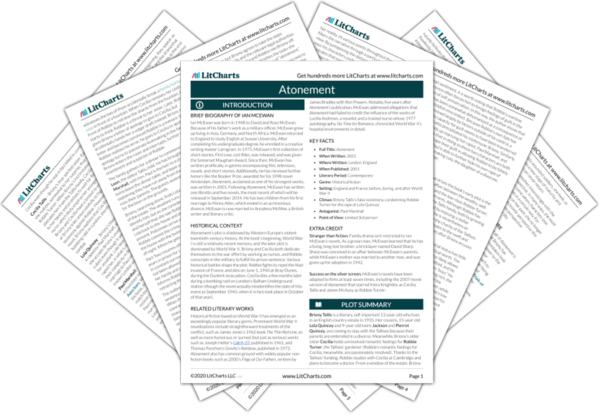Next
Summary
Atonement Study Guide |
Next
Summary
|
Welcome to the LitCharts study guide on Ian McEwan's Atonement. Created by the original team behind SparkNotes, LitCharts are the world's best literature guides.

Stranger than fiction. Family drama isn’t restricted to Ian McEwan’s novels. As a grown man, McEwan learned that he has a living, long-lost brother: a bricklayer named David Sharp. Sharp was conceived in an affair between McEwan’s parents, while McEwan’s mother was married to another man, and was given up for adoption in 1942.
Success on the silver screen. McEwan’s novels have been adapted to films at least seven times, including the 2007 movie version of Atonement that starred Keira Knightley as Cecilia Tallis and James McAvoy as Robbie Turner.